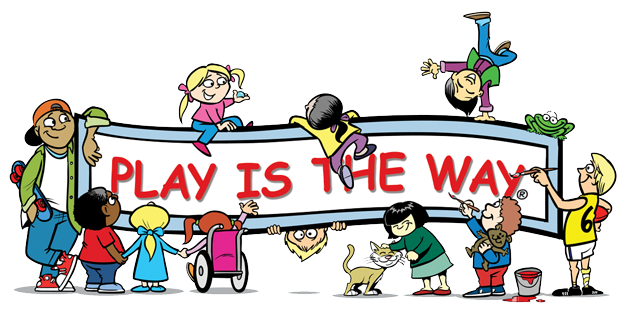1. How does the methodology work
There are three parts to the methodology:
- A program of physically interactive games that students play regularly each and every week (see – Why Games?)
- A simple and effective “reflective language” that helps children to master their own behaviour.
- Five principles that when understood and embedded help to guide and direct the way students live and learn.
1. Has the methodology been evaluated?
Various evaluations of Play Is The Way have been conducted over the years. CLICK HERE FOR FURTHER INFORMATION
Play Is The Way welcomes any enquiries from persons wishing to conduct their own evaluation of our methodology. Contact us at info@playistheway.com.au
4. Is any special training required to implement Play Is The Way?
Though not essential, many schools, wanting to ensure an informed and positive start to the program, send some of their staff to an OPEN WORKSHOP or arrange to hold a workshop at their school for all staff.
The Implementation Guide for school leaders effectively assists in establishing and maintaining Play Is The Way.
5. Does the methodology have to start at the beginning of the year?
Play Is The Way can be started at any time in the year; although most schools, for organisational reasons start at the beginning of a term. It will take at least a few weeks to get everything in place prior to commencing Play Is The Way with students.
6. What’s in it for teachers?
Teachers train as they use the program. Their repertoire of skills and strategies improves with continued involvement in the program.
The resources coach teachers in the use of an effective language by which to guide children. With use and practise this language becomes a tool used in every area of a teachers interactions with students.
If difficult behaviour is a source of concern and stress then having a means to change and improve it can only lead to calmer, more satisfying teaching.
7. Do teachers need to be sporty or fit to use the program?
No, they do not. Little demonstration of the games is necessary as they are simple in structure and easy to explain.
Teachers are not encouraged to directly participate in the games but rather to observe and ask the insightful and penetrating questions that help students improve the outcome of the games.
8. Does it only work if children have difficult behaviours?
The skills of pro-social behaviour advantage all children. Indeed, they advantage adults as well.
Maintaining these skills is best achieved by trying to improve them.
Socially and emotionally competent children, with the skills to cooperate and effectively work with others, will enjoy the challenges the program presents.
The wide variety of games and activities invariably reveal areas of weakness and concern in even the “best” of students.
The old adage, “practise makes perfect” holds true and if children are not actively practising the skills of pro-social behaviour, it can be safely assumed those skills will deteriorate over time.
9. Is Play Is The Way effective for all ages in primary school?
Yes. As much as possible, all students play the same games. Where that is not possible, games specifically designed for junior primary students are used.
10. Does Play Is The Way work in a single gender school?
The methodology develops the personal and social capabilities of both boys and girls be they learning together or separately.
11. Is Play Is The Way effective for children with disabilities?
A characteristic of the games is that they are easy to adapt and modify. As a consequence they can be altered to include a wide range of differences and disadvantages.
However, it must be said that disability has a very broad definition and there are some games where inclusion is not possible and certain physical or intellectual skills are a prerequisite for participation as well as understanding the reflective language and the daily use of the five guiding principles.
That said, the threshold for involvement is not high and children with little inclination or skills for physical activity are able to get involved and improve as their participation increases.
12. Does Play Is The Way work in small schools?
A great many of the games and activities can be played in multi-aged groups and provided that a group of somewhere between 14 and 20 students can be formed, there should be little difficulty in using Play Is The Way.
13. How long and how often should students be playing Play Is The Way games?
We recommend playing one hour of games per week typically broken into 3 x 20 or 4 x 15 minute sessions.
14. Does Play Is The Way work in secondary schools?
We created the methodology for primary schools because we have always believed the earlier the intervention, the better.
Interestingly, over the past few years an increasing number of secondary schools have shown an interest in the methodology.
Teachers working with students in the first two years of high school have attended our workshops and we have had some positive feedback about the methodology’s effectiveness in these early years.
As regular engagement with the play process is essential, timetabling can make it difficult for secondary schools to use the games program to its full potential.
15. What equipment will I need?
The equipment list will enable you to play all of the PLAY IS THE WAY® games with a group of up to thirty participants.
16. Can I use Play Is The Way in my business or organisation?
The Wilson McCaskill methodology (PLAY IS THE WAY®) is for the development of personal and social capabilities of children within a school setting and is for the use of schools only. Persons, business and organisations wanting to use any or all elements of the methodology outside of a school setting and for whatever purpose must be licenced to do so (see Intellectual Property Policy).

